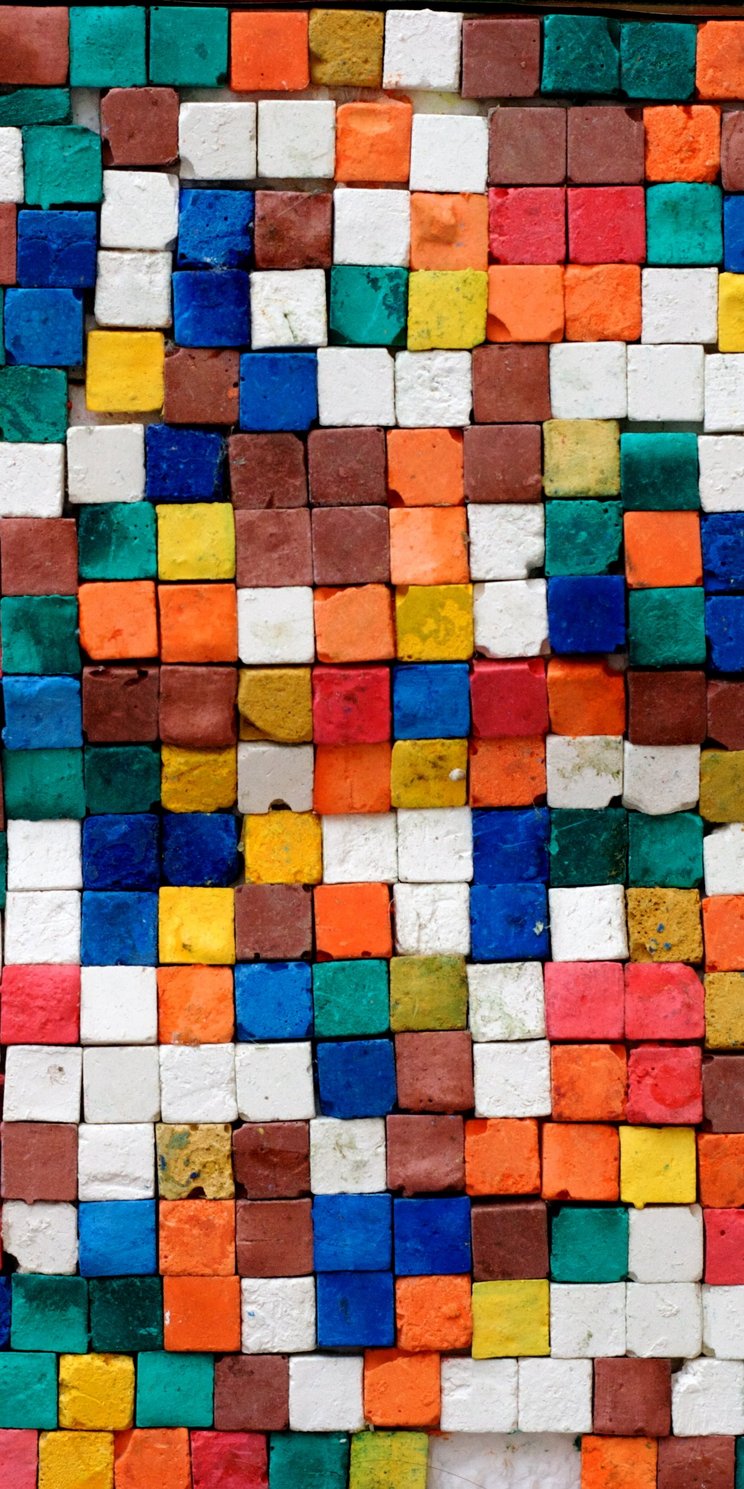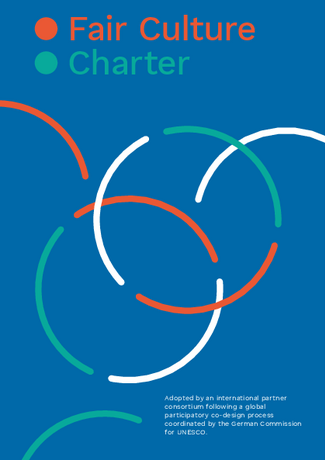Current situation worldwide and the idea behind the initiative
There are tremendous differences and structural inequalities in culture and the creative industries between the regions of the world: 95% of all cultural goods and services exported worldwide come from traditional industrialised countries. The UNESCO World Culture Reports 2018 External link:and 2022External link: show that many artists from the so-called Global South are structurally denied access to international art and cultural markets. This often results in precarious financial and social realities. The COVID-19 pandemic has further exacerbated the situation. In addition, digitalisation is radically changing value chains in the cultural and creative sector, with drastic consequences for cultural workers.
The Fair Culture initiative is inspired by Fairtrade, a well-established model of global trade for fairer working conditions and more sustainable market development in the food and textile industries. Although international standards exist in the cultural and creative industries in the form of the UNESCO Convention on Cultural DiversityExternal link:, there are no comparable models to Fairtrade in the cultural sector to date. The German Commission for UNESCO wants to change this with its Fair Culture initiative.
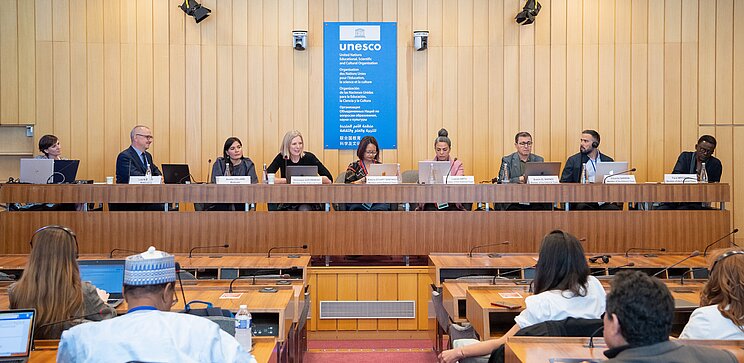
The Fair Culture Charter
The Charter is the basic document of the Fair Culture Initiative. It sets out eight principles for a fair development of the cultural sector. These are intended to serve as guidelines and a voluntary commitment for creatives, companies and states to fundamentally improve the general conditions in culture and the creative industries.
- Decent working conditions and fair remuneration
- Access to diverse cultural expressions and resources
- Non-discrimination and gender equality
- Local development
- Market access
- Digital equity and ethics
- Respect for the environment
- Public and consumer awareness
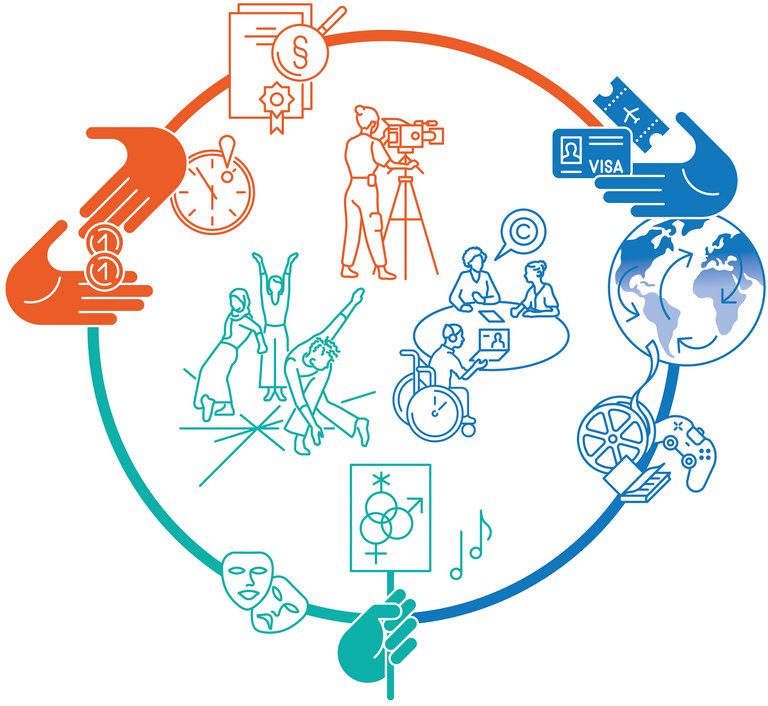
Drafting the Fair Culture Charter
The Fair Culture Charter was developed in 2023 in a participatory process involving a wide range of international stakeholders. The German Commission for UNESCO coordinated this process. Numerous expert discussions and the recommendations from the study Fair Culture – A Key to Sustainable DevelopmentExternal link: formed the basis for the creation of the Charter. In addition, several global consultation processes were organised in which over 100 experts from culture, politics, science and civil society from all around the world took part. Alongside this, the Fairtrade Charter was an important source of inspiration.
The Charter was drafted by a nine-member editorial team from all world regions: Jordi Balta Portolés, Transit Projectes, Spain | Brahim El Mazned, Visa for Music Festival, Morocco | Prof. Véronique Guèvremont, University of Laval, Canada | Eddy Johana Gómez, Llorona Records, Colombia | Farai Mpfunya, governance of culture consultant, Zimbabwe | Eduardo Saravia, Sound Diplomacy, Colombia | Anupama Sekhar, South-South Arts Fellowships and ArtsEquator, UAE/India | Luanda Smith, Creatividad y Cultura Glocal A.C., Mexico | Katrina Stuart Santiago, writer and founder of PAGASA – People for Accountable Governance and Sustainable Action, Philippines.
The Charter process was supported by a partner alliance consisting of twelve actors in an advisory capacity. These partners adopted the Fair Culture Charter at the beginning of 2024:
- Fairtrade International
- Fair Picture
- Ministry of Culture (France)
- Goethe-Institut (Germany)
- Institute for Creative Entrepreneurship and Innovation (Serbia)
- Instituto Maracá (Brazil)
- Kenya National Commission for UNESCO (Kenya)
- Korean National Commission for UNESCO (South Korea)
- UNESCO Chair Diversity of Cultural Expression at University Laval (Canada)
- International Federation of Coalitions for Cultural Diversity
- International Federation of Musicians
- International Federation of Actors
The Fair Culture Charter was published at an international online launchExternal link: in September 2024.

Support the Fair Culture Charter
To express your support for Fair Culture, go to the Fair Culture websiteExternal link: and sign the Charter.
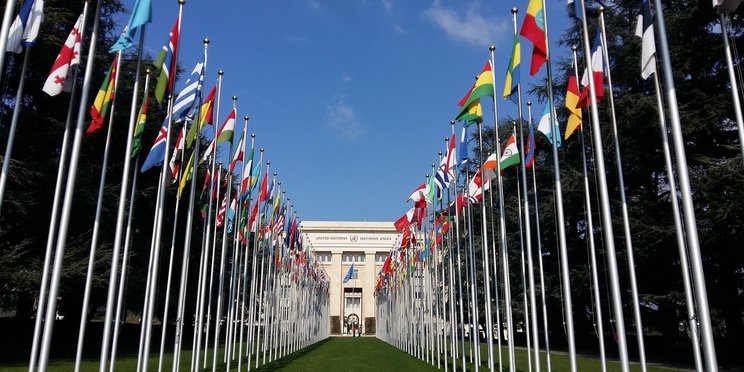
Legal basis of Fair Culture
The Fair Culture initiative is based on international law, in particular the 2005 UNESCO Convention on the Protection and Promotion of the Diversity of Cultural Expressions, the 1980 UNESCO Recommendation on the Status of the Artist and the 2030 Agenda.
UNESCO Convention on Cultural Diversity
A balanced exchange of cultural goods and services and the mobility of artists and cultural workers worldwide are among the most important objectives of the UNESCO Convention on Cultural DiversityExternal link:. Its Article 16 calls for preferential treatmentExternal link: of artists as well as cultural services and goods from the so-called Global South in order to overcome existing inequalities between world regions. Countries such as Germany have a responsibility here: they should shape trade agreements, support measures (residencies, co-production funding, etc.) and general conditions (tax law, visa regulations, etc.) in favour of the countries of the so-called Global South.
The UNESCO Convention of 2005 also forms the legal basis for recognising the dual nature of cultural goods and services. They have both a cultural and an economic value. Raising public awareness of the economic aspect of cultural goods and services can improve working conditions for cultural professionals. For example, through fair prices and wages and conscious consumption. At the same time, it is important to always bear in mind that culture also means identity, a sense of purpose and cohesion.
UNESCO Recommendation on the Status of Artists
The 1980 UNESCO Recommendation on the Status of ArtistsExternal link: already emphasises the importance of social security and fair working conditions for cultural and creative workers.
Agenda 2030
Fair Culture also draws on the United Nations 2030 Agenda for Sustainable DevelopmentExternal link:. In particular it aims to further the goals ‘Decent Work and Economic Growth’ (SDG 8), ‘Reduced Inequalities’ (SDG 10) and ‘Peace, Justice and Strong Institutions’ (SDG 16).
